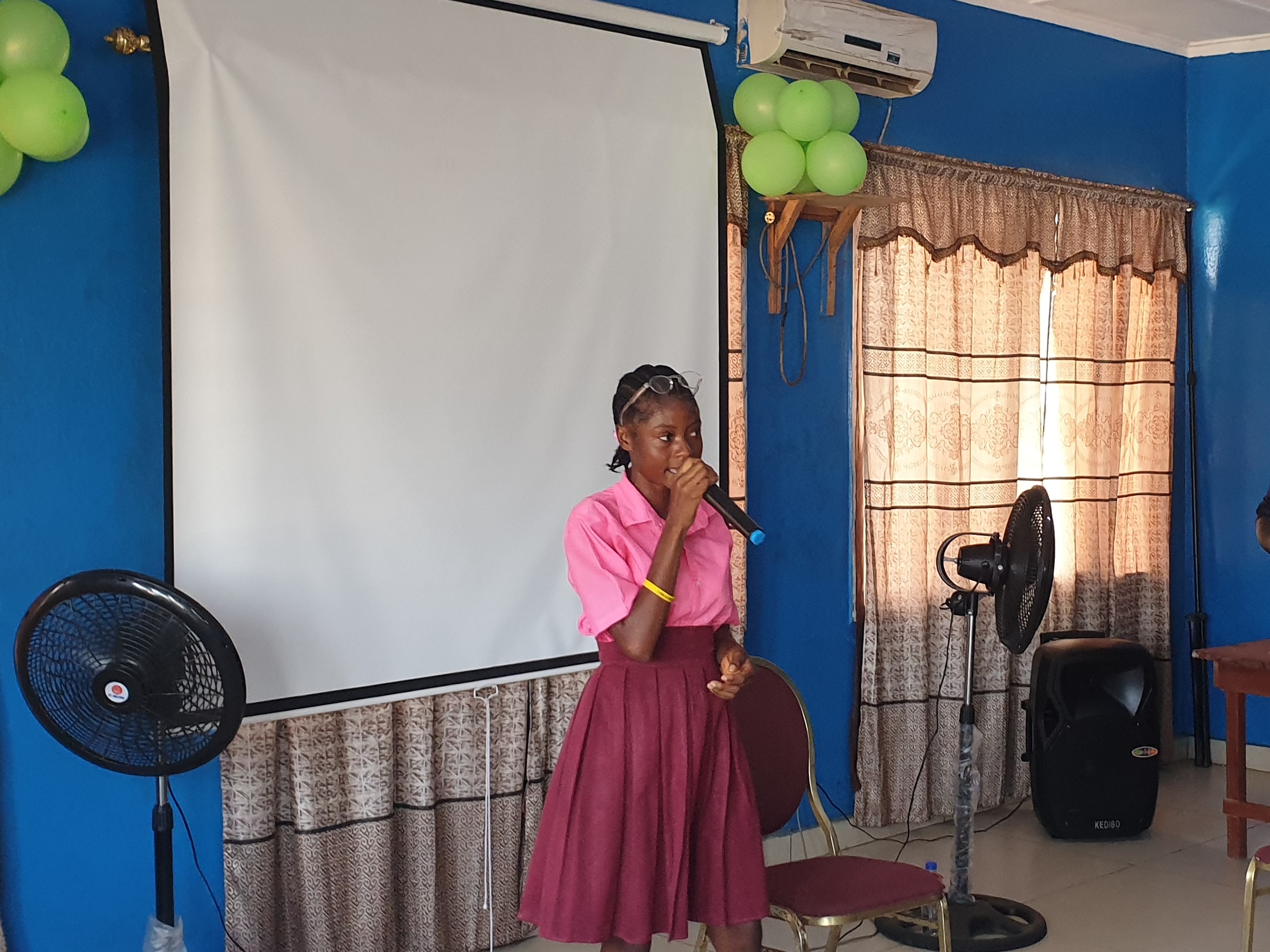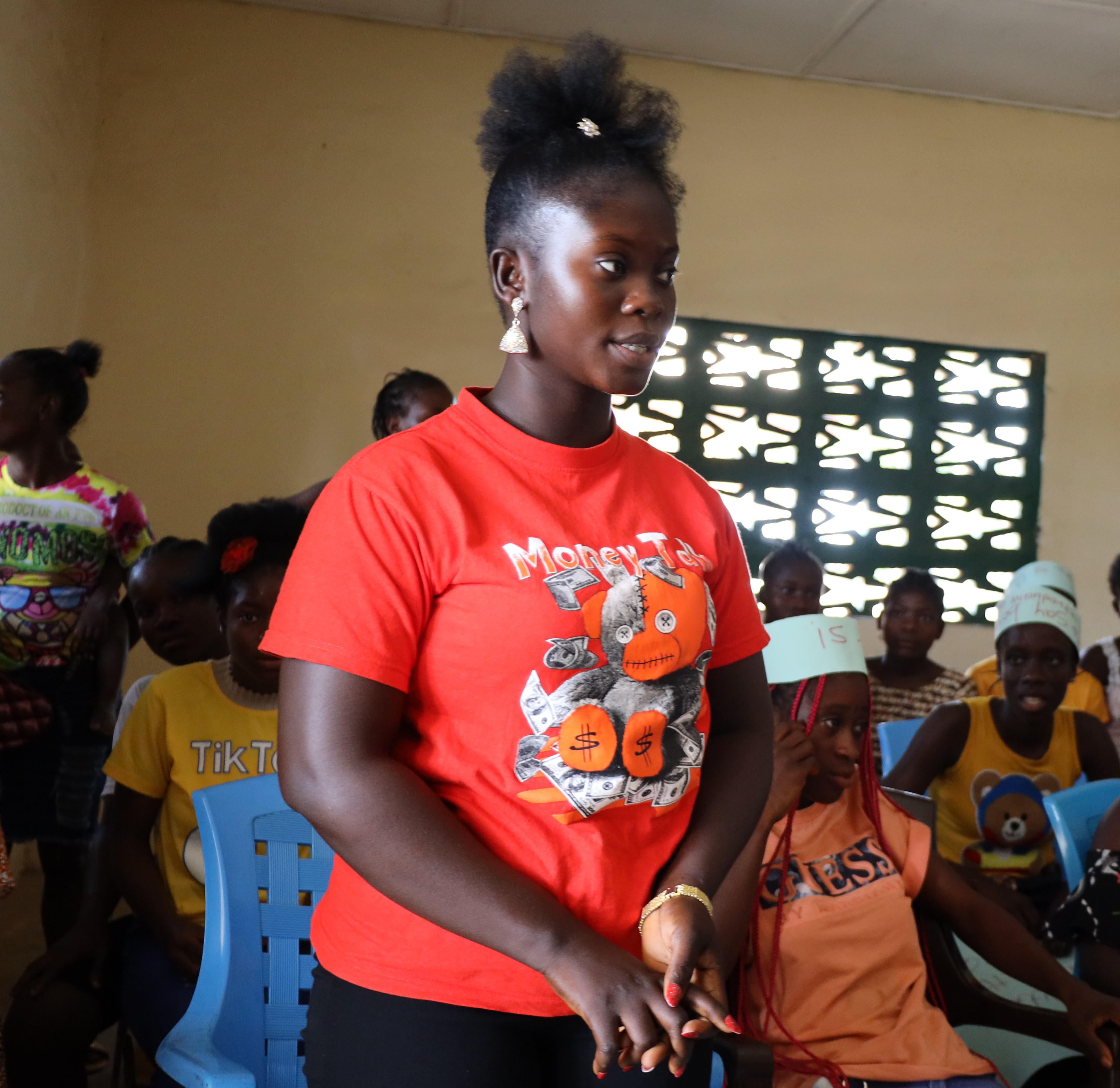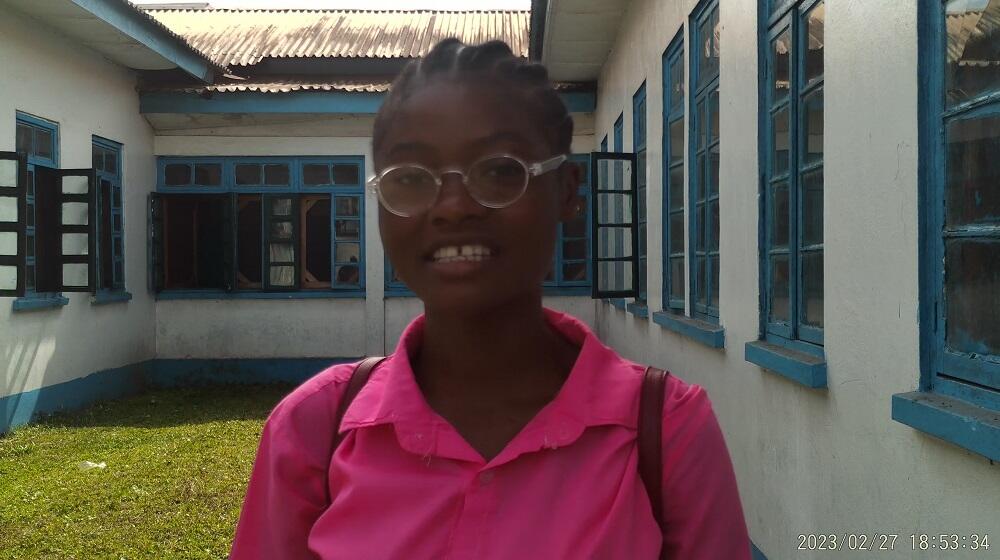Greenville, Liberia - “I have come to understand that having unprotected sex has serious consequences, including unplanned pregnancy and sexually transmitted infections. I also know that getting pregnant early will rob me of my future goals and aspirations,” says Vistina.
Vistina, aged 17, resides in Greenville, Sinoe County, Southeast Liberia. She is a Grade 11 student and Health Club member at Sinoe Multilateral High School. According to her, through membership in the School Health Club, she gained the information and agency to make informed decisions about her sexual and reproductive health and rights.
Empowered to make choices
“I have set my future goals and aspirations, which I don’t want unplanned pregnancy to delay or rob me of. I am having sex, so the only way to avoid getting pregnant is through family planning [contraceptives], which I am doing,’’ says Vistina.

impacted her life. ©UNFPA Liberia
While Vistinia has been able to avoid unplanned pregnancy, some of her peers in Greenville, including Christiana, could not.
“I am not in school now because of pregnancy. I had to drop out of school last year [2022] as my parents asked me out of their house when they realized I was pregnant. As God would have it, I delivered in December,” Christiana said.
According to Christiana, she plans to return to school at the beginning of the next academic year, in September. But she is already taking steps to avoid the same situation befalling her again. “On this day, I went to visit a friend. Upon arrival, I met a woman explaining life skills education and family planning. I was interested in the discussion and asked how to get additional information. She invited me to one of her community meetings. The lessons I learned during my first attendance at the community meeting encouraged me to begin taking contraceptives and join the group as a peer educator,” Christiana recounted.
Unplanned and early pregnancy remains one the main factors jeopardizing the rights, health, education, and potential of the Girl Child in Liberia as 30 percent of young women aged 15-19 are already mothers or are pregnant with their first child. Girls with little or no education are at the worst end of the teenage pregnancy rate in Liberia, as 47 percent have begun childbearing, compared with 20 percent of those who attended senior high school.
Impactful Intervention
In 2017, UNFPA, the United Nations Population Fund, and the Government of Liberia, with funding from the Embassy of Sweden, began the expansion of efforts to ensure that adolescents and young people have access to age-appropriate sexual and reproductive health information and services, especially in Southeastern Liberia, the region which until the start of the intervention, had an average teenage pregnancy rate of 49 percent as compared to the national rate of 31 percent.
But five years on, it has been observed that the “Universal Access to Sexual and Reproductive Health Programme” in the five southeastern counties, including Grand Gedeh, Grand Kru, Maryland, River Gee, and Sinoe counties, has been impactful and has contributed to nearly a 50 percent reduction in teenage pregnancy in these counties which is also a significant contributing factor to the lowering of maternal and newborn deaths in the five counties.
The Programme provides adolescents and young people access to youth-friendly sexual and reproductive health services to prevent unplanned pregnancies. It uses a three-pronged approach, including schools, communities, and health facilities, to reach adolescents and young people with sexual reproductive and rights information and services, including family planning.

©UNFPA Liberia
The school-level intervention includes the provision of Comprehensive Sexuality Education (CSE) at select schools by trained teachers and sexual and reproductive health information by peer educators through School Health Clubs. The School Health Clubs team members are mentored to provide sexual reproductive and rights information in schools to adolescents and young people, distribute condoms and refer their peers to the nearest YFC for services.
The community-level intervention works with Community-Based Organizations (CBOs) to reach out to out-of-school adolescents and young people with SRHR information and services.
At the health facilities are youth-friendly corners/centers where adolescents and young people access services, including family planning, treatment of STIs, HIV counseling and testing, and post-abortion care.


